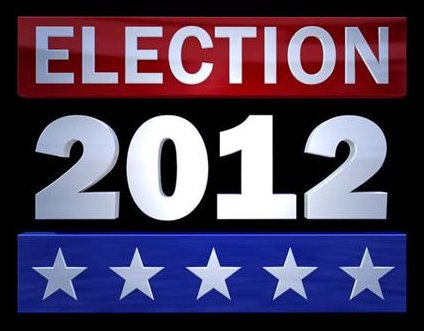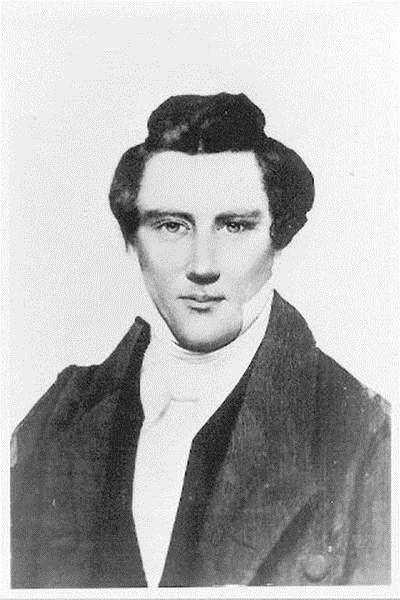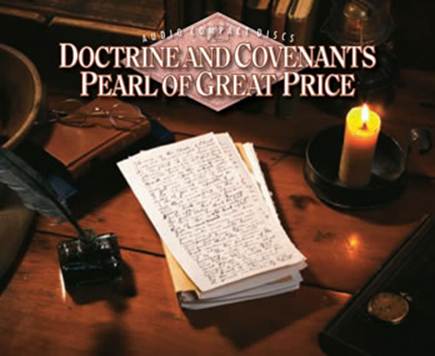 My previous blog, on religious liberties, concerned the response of Christian organizations and business owners filing suit against the Obama administration because of its demand that organizations pay for, via their insurance coverage, their employees’ surgical abortions and contraceptives (including abortifacients).
My previous blog, on religious liberties, concerned the response of Christian organizations and business owners filing suit against the Obama administration because of its demand that organizations pay for, via their insurance coverage, their employees’ surgical abortions and contraceptives (including abortifacients).
I was surprised reading my blog’s comments to hear professing Christians say that they do not believe it is an infringement of religious liberties for a Christian university, ministry or business to be required to do this. If you haven’t read that blog you may wish to. This subject has far-reaching importance. I find it difficult to understand how the administration’s demands can be seen as anything other than a fundamental violation of historic religious liberties.
Well, time to move on so that I can offend others. :) (Truthfully, I’m not trying to offend anyone. But that won’t keep it from happening.)
Regarding Mitt Romney’s Mormonism…. I grew up in a nonchristian home. My dad was a tavern owner, we never went to church, and even Billy Graham was persona non grata in our house. I was empty and searching, but in high school my life was radically changed. The Jesus I came to know was the one I learned about through reading Scripture. This Jesus is not “however you wish to define him.” Rather, he is the second member of the triune God, not creature but Creator (John 1:1-3; Colossians 1:16).
I believe in the gospel of God’s grace secured on the cross by Jesus Christ, the God-man. It cannot be earned or achieved in by human works, ceremonies or church affiliations (Ephesians 2:8-9; Titus 3:5). This is the only true gospel, the one of which Scripture says, “But even if we or an angel from heaven should preach to you a gospel contrary to the one we preached to you, let him be accursed” (Galatians 1:8).
 The Mormon faith began with the appearance of an angel to Joseph Smith, proclaiming a gospel contrary to Scripture’s. Am I troubled by the idea of voting for a candidate who has served as a bishop in, and continues to be part of, a religious group that misrepresents both Jesus Christ and the gospel? In a word: Yes.
The Mormon faith began with the appearance of an angel to Joseph Smith, proclaiming a gospel contrary to Scripture’s. Am I troubled by the idea of voting for a candidate who has served as a bishop in, and continues to be part of, a religious group that misrepresents both Jesus Christ and the gospel? In a word: Yes.
Some will argue that it’s hateful and bigoted to say this. I feel no hatred. I know and love a number of Mormons. (I also know atheists and agnostics—and for that matter, Steelers and Raiders fans—and countless others whose beliefs and passions I don’t share, but whose company I still enjoy :).
Others will say, “You don’t know what you’re talking about—you know nothing of Mormonism.”
 On the contrary, I have studied it extensively. Years ago I read all the Mormon holy books, including the Book of Mormon, Doctrine and Covenants, and Pearl of Great Price. I went to a Mormon library to read portions of Journal of Discourses, the 26-volume collection of sermons by early leaders of The Church of Jesus Christ of Latter-day Saints. Published by the stenographer of Brigham Young, it records over 1400 sermons of the most prominent LDS leaders in the first four decades of Mormonism. It includes sermons by Brigham Young, Orson Pratt, Heber C. Kimball and fifty-some others.
On the contrary, I have studied it extensively. Years ago I read all the Mormon holy books, including the Book of Mormon, Doctrine and Covenants, and Pearl of Great Price. I went to a Mormon library to read portions of Journal of Discourses, the 26-volume collection of sermons by early leaders of The Church of Jesus Christ of Latter-day Saints. Published by the stenographer of Brigham Young, it records over 1400 sermons of the most prominent LDS leaders in the first four decades of Mormonism. It includes sermons by Brigham Young, Orson Pratt, Heber C. Kimball and fifty-some others.
I have met at length with Mormon elders, current Mormons and former Mormons who left the church after coming to faith in Christ. We have together looked at passages in their documents that teach many things that contradict Scripture. I know enough about Mormonism to know it is distinctly different from biblical Christianity. (I know I will hear from sincere Mormons grieved that I have said this. I truly do not want to offend you or any of my Mormon friends, including those I grew up with; what I want you to know is the saving grace of Jesus, the God-man revealed in Scripture, who went to the cross and paid for our sins, offering to us an eternal life we cannot in any sense earn or achieve.)
Al Mohler expressed some helpful, clear thoughts about Mormonism. I will quote a paragraph, but his article is well worth reading:
Mormonism does not claim to be just another denomination of Christianity. To the contrary, the central claim of Mormonism is that Christianity was corrupt and incomplete until the restoration of the faith with the advent of the Latter-Day Saints and their scripture, The Book of Mormon. Thus, it is just a matter of intellectual honesty to take Joseph Smith, the founder of Mormonism, at his word when he claimed that true Christianity did not exist from the time of the Apostles until the reestablishment of the Aaronic and Melchizedek priesthoods on May 15, 1829.
There are various websites where former Mormons present the church’s doctrine as it was taught to them, and is recorded in the writings of LDS leaders God supposedly spoke through. Had I not personally studied Mormon writings and dialogued with Mormon leaders, I doubt I would believe that the following are teachings of the church. Here are just some of them:
- God was once a man like us.
- God has a tangible body of flesh and bone.
- God lives on a planet near the star Kolob… The sun receives its light from the star Kolob.
- God the “Heavenly Father” has at least one wife, our “Mother in Heaven,” but she is so holy that we are not to discuss her.
- Jesus was married.
- There are many gods, ruling over their own worlds.
- We can become like God and one day rule over our own universes.
- Jesus and Satan (“Lucifer”) are spirit brothers, and they are our brothers—we are all spirit children of Heavenly Father
- Jesus Christ was conceived by God the Father by having sex with Mary, who was temporarily his wife.
- Before coming to this earth we lived as spirits in a “pre-existence”, during which we were tested; our position in this life (whether born to Mormons or savages, or in America or Africa) is our reward or punishment for our obedience in that life.
- The Garden of Eden was in Missouri. All humanity before the Great Flood lived in the western hemisphere. The Ark transported Noah and the other survivors to the eastern hemisphere.
- If a Gentile becomes Mormon, the Holy Ghost actually purges his Gentile blood and replaces it with Israelite blood.
- A righteous Mormon will actually see the face of God in the Mormon temple.
I see Mormon websites denying these are their doctrines, but when I look a number of them up in their texts they are there. I recently read a Mormon scholar in a popular magazine saying that a number of these doctrines have never been taught by the church. He said it was absolutely false that Mormons believe God the Father took on a human body and had sex with Mary in order for her to conceive Jesus.
 Yet here is Brigham Young, second president of the LDS, whose words were supposedly inspired by God: “The birth of our Savior was as natural as are the births of our children; it was the result of natural action. He partook of flesh and blood—was begotten of his father, as we were of our fathers” (Journal of Discourses, volume 8, p. 115). Look it up for yourself.
Yet here is Brigham Young, second president of the LDS, whose words were supposedly inspired by God: “The birth of our Savior was as natural as are the births of our children; it was the result of natural action. He partook of flesh and blood—was begotten of his father, as we were of our fathers” (Journal of Discourses, volume 8, p. 115). Look it up for yourself.
Or, if you think the star Kolob stuff is made up, just read Pearl of Great Price as posted by the Mormon church online. Please don’t leave me a comment saying this is not what the church teaches. Just go to the link, search for “Kolob” and you can see for yourself what it says (see Abraham 3:2–16, on page 36 of the linked file). Read it in context. It will be an eye-opener. Read the article by former Mormon Sandra Tanner on the location of the Garden of Eden. Here’s a summary of the teaching of the Heavenly Mother. And here’s Jesus and Satan as spirit brothers.
Here’s another summary of Mormon teachings. (link to). And a helpful comparison between Mormon and Christian doctrines.
Okay, so where does this leave me in regard to Mitt Romney’s Mormonism? Honestly, in the past I would have said, “No way would I vote for a presidential candidate with those beliefs.” I don’t like the idea of the president of the United States being the most prominent face of Mormonism in the world. I don’t like the idea that as a sharp, well-spoken person he could draw people toward a faith that denies the deity of Christ our Savior, and distorts the gospel of grace.
But none of that changes the fact that one of only two candidates will become president of the United States. And while the presidential candidates both profess to be Christians, in my opinion they each have beliefs that sharply contradict historic, biblical Christianity.
In Governor Romney’s case there is a rejection (though likely never explicit) of the biblical gospel and identity of Christ, as well as a number of bizarre beliefs unique to Mormonism. What President Obama believes in his heart about Christ, I cannot tell you. But I do know that he has been a devastatingly outspoken opponent of the right to life of our smallest and most vulnerable children. He has boldly implemented a healthcare plan that violates historic religious liberties, actually attempting to compel Christian organizations to pay for their employees’ abortions (which they believe to be child-killing). He also has affirmed that gay marriage should be established on a legal level equal to heterosexual marriage, changing the historic view of the family.
I believe each of these positions is a dramatic departure from Scripture, and from the historic Christian faith. I don’t just mean from modern evangelical Christianity, I mean Roman Catholicism, Eastern Orthodoxy and every tradition within Protestantism that has ever professed belief in the Bible. (Modern liberal Protestantism is different in that it simply follows secular culture in either explicitly or implicitly denying the Scriptures.)
So how do I choose between two candidates who in my opinion fall far short? I must consider not simply the candidates’ professed religious beliefs, but their past positions on moral issues, their promises and statements of intentions of what they will do in office.
Respected evangelical theologian Wayne Grudem says of Mitt Romney, “He seems to me to stand for policies that reflect biblical values, including all or nearly all of the policies that I advocated in my book Politics — According to the Bible.” Grudem says,
 Romney is a Mormon, and I strongly disagree with a significant number of Mormon theological beliefs, which I find to be inconsistent with the Bible and with historic Christian teachings. But many Mormon teachings on ethics and values are similar to those in the Bible….
Romney is a Mormon, and I strongly disagree with a significant number of Mormon theological beliefs, which I find to be inconsistent with the Bible and with historic Christian teachings. But many Mormon teachings on ethics and values are similar to those in the Bible….
…Have we come to the point where evangelicals will only vote for people they consider Christians? I hope not, for nothing in the Bible says that people have to be born again Christians before they can be governmental authorities who are used greatly by God to advance his purposes.
Grudem has more to say about this, and you may find it helpful.
Some believers are saying that given the choices, they’re not going to vote. I understand. I’ve been there. But not this time. Part of me really resists the lesser of two evils approach. I find it hard to explain what’s different this time, except that in the last four years we have lost things (particularly in the arena of religious liberties) which, if not recovered in the next four, I think may never be recovered. I have children and grandchildren. I don’t want them to pay the price for my disenchantment and unwillingness to choose between two candidates. I am voting for their sake because I can’t figure out, this time at least, how I can help them by not voting.
I was just finishing this blog when I saw John Piper’s “I am Going to Vote.” He explains, “The likelihood that both presidencies will be identical in the good and evil they do is infinitesimal. One will very probably do more good amid the bad, even if only a little.” If I might make a lot of difference for my children and grandchildren, I will certainly do it. And if I could make even a little difference I will do that too.
 All Christians should do our best and search the Scriptures, weigh and measure the relative strengths and weaknesses of the candidates, and vote as best we can considering the options before us. So, yes, I am troubled voting for a candidate who is a Mormon. But am I more or less troubled voting for the other candidate?
All Christians should do our best and search the Scriptures, weigh and measure the relative strengths and weaknesses of the candidates, and vote as best we can considering the options before us. So, yes, I am troubled voting for a candidate who is a Mormon. But am I more or less troubled voting for the other candidate?
I take comfort in the fact that we are not voting for a pastor, but a president. (If we were voting for a pastor, I would definitely do a write-in!) In a Christianity Today article “Is There Anything Wrong With Voting for a Mormon? Three Views”, Molly Ziegler Hemingway quotes Martin Luther as saying, “Christians are not needed for secular authority. Thus it is not necessary for the emperor to be a saint. It is not necessary for him to be a Christian to rule. It is sufficient for the emperor to possess reason.”
Luther meant not only wisdom, but moral reason. So as you consider who to vote for in an election that lacks an ideal candidate, ask yourself which man’s (and include the vice presidents too) stated values and track record is in the best interests of: a sound moral framework, care for the needy that motivates and empowers them, financial responsibility, the upholding of civil and religious liberties, and a reasonable national defense.
Subsequent blogs in the short time before the election will include abortion, gay marriage, and a few other issues. So if there is one more person left I haven’t yet offended, take heart. I’m not done. :)
More Election 2012 Blog Posts
Part 1: Racial Issues, Helping the Poor and Financial Responsibility
Part 2: Which Candidate Will Best Protect Religious Liberties?
Part 4: Do the Candidates Have Different Positions on Abortion and Does it Matter?




